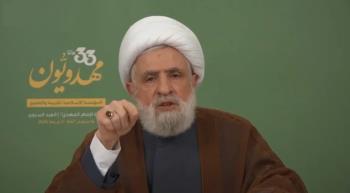Alwaght- In an apparent change of tone towards Iran, the Saudi Crown Prince Mohammed bin Salman on Tuesday said "Iran is a neighbouring country, and all we aspire for is a good and special relationship with Iran," days after unconfirmed reports that Iran and Saudi Arabia representatives held talks in Iraq.
The comments seem to bear a clear sign of willingness to break the ice of relations between these two regional powers after years of extensive tensions. But how true is Prince Mohammed's will to solve the problems with Iran? How far can this change go? To find answers we first need to see what caused the change in his official stance.
Bin Salman in foreign policy impasse
Salman bin Abdulaziz assumption of power in 2015 initiated significant changes in the domestic and foreign policies of Saudi Arabia, with his elder son Mohammed playing overt and covert role in the newly-adopted policy marked by ostensibly reformist approach at home and aggressive approach to rivals abroad. The start of war against Yemen was the turning point of the aggressive foreign policy of the kingdom led by Prince Mohammed. Its continuation was the blockade on Qatar in 2017, followed by efforts to destabilize Iraq, taking Lebanese Prime Minister Saad Hariri hostage and creating crisis in Lebanon, cutting off diplomatic ties with Iran and promising to "bring war inside Iran", and assissting Trump’s pressures on the Palestinians and the "deal of the century" in a bid to prepare the ground for normalization with Tel Aviv. These made up the facade of the new Saudi foreign policy.
However, bin Salman has now failed in most of these cases. The war in Yemen has reached a dead end for the Saudis after 6 years of brutal aggression and creating a great humanitarian crisis in the already-impoverished country. The continuation of the war with exorbitant military costs, international protests against the continuation of the war, dragging the war into Saudi Arabia, and posing risks to the energy production and transfer which makes the source of income for the oil-dependent Arab economy have generated a real quagmire for the Saudi leaders.
On the other hand, with the announcement of the withdrawal of the UAE from Yemen operations and the end of US support for the war, Riyadh finds itself alone, and differences with southern separatists of Yemen have had a major negative impact on Saudi maneuvering power in the war. Empowered by confidence of years-long war and military progress, the opposite camp, represented by Ansarullah Movement, is pushing with its advances in the strategic Ma'rib province in months-long war to capture the last stronghold of the resigned President Abdrabbuh Mansour Hadi in the north.
With Trump departure from the White House and the arrival of the Democratic administration, which promised to put pressure on Riyadh to respond to the assassination of Jamal Khashoggi, stop the suppression of the opposition inside, end the siege on Qatar, and end the war in Yemen, bin Salman began to grow worried about his post. In response to all these developments, he finds inevitable a change in his foreign policy to save his political position as he has a powerful rival like Mohammed bin Nayef.
After reconciliation with Qatar, now de-escalation of tensions with Tehran is another step in the way to adjust to the new international conditions.
Iran has repeatedly stated its readiness to start comprehensive regional talks with the Persian Gulf Arab states, especially Saudi Arabia, that were ignored by Riyadh. However, in his recent change of tone, the Saudi crown prince continues to refer to what he calls "negative behavior" and "proxy actions of Iran", indicating that he has a tactical view of dialogue with Tehran and seeks concessions to escape Yemen's big challenge.
Closing eyes to the reality of Riyadh's damaging interference in Lebanon, the Saudi-assissted continuation of the crackdown on popular protests in Bahrain, the inciteful Saudi financial and media coverage of the protests in Iraq, the continuation of war crimes in Yemen, the attempt to split the country against the Yemeni people's will, moving towards normalizing relations with the Israeli regime, and supporting terrorism in Syria and Iraq, bin Salman speaks of the need to change Iran's behavior.
But the course of regional developments very well reveals that the Saudi crisis-generating policies are in impasse and the monarchy sees it inescapable to change its aggressive behavior concerning the Iran-led Axis of Resistance. Iran several times expressed preparation to help solve the Saudi problems in Yemen under the condition of halting the aggression, lifting the all-out air, ground, and sea blockade, and respecting the Yemeni people's self-determination right. For the sake of success of de-escalation with Tehran and moving past the dead end, the right option for Riyadh, therefore, is to avoid tactical and show policy shifts and face the reality in the disputed cases with the Resistance camp.



























